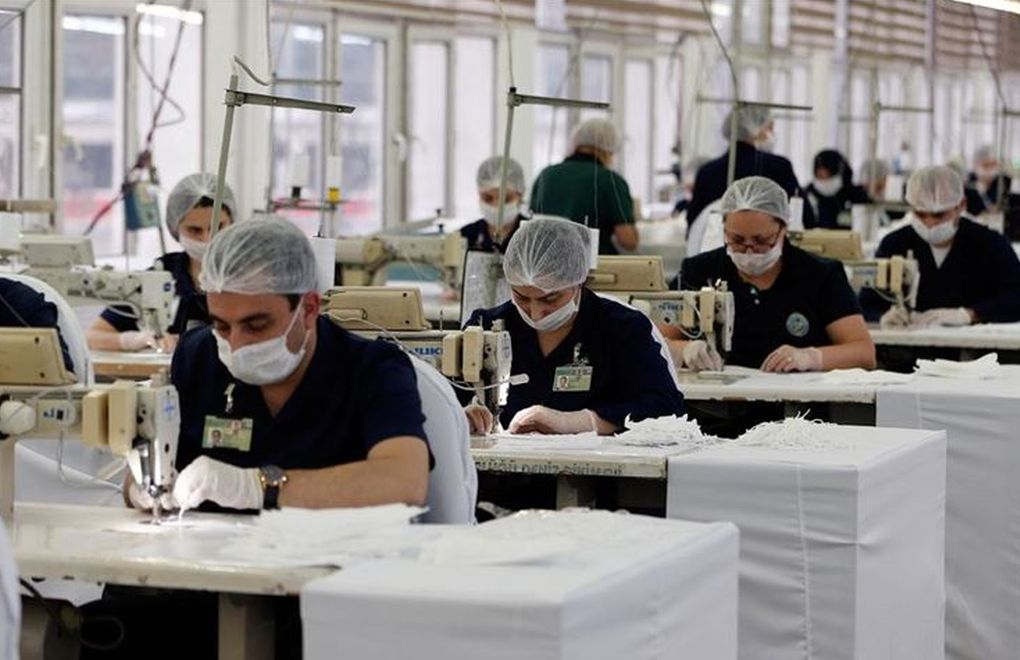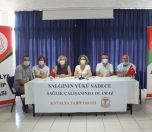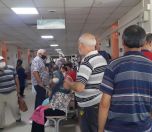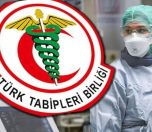TURKISH MEDICAL ASSOCIATION
‘COVID-19 is a working class disease’

* Photo: Anadolu Agency (AA) - Archive
Click to read the article in Turkish
The Turkish Medical Association (TTB) has been delivering "Pandemic Bulletins" every Wednesday amid the novel coronavirus (COVID-19) outbreak. The 11th bulletin of the Association titled "COVID-19 is a working class disease" was delivered online by TTB Central Council Chair Prof. Şebnem Korur-Fincancı yesterday (August 4).
Extending her condolences to the ones who have lost their lives in the recent fires and floods raging across the country and her get-well-soon wishes to the ones wounded in these incidents, Prof. Korur-Fincancı said, "Not managing the pandemic, the government's shortcomings in tackling the fires and floods are also before the eyes of all of us."
Korur-Fincancı underlined that millions of workers, who have been forced to work since the first day of the pandemic, have been left unprotected in both their workplaces and during their transportation.
She noted that due to the COVID-19 related deaths, the number of occupational homicides has increased by at least 30 percent.
Underlining that COVID-19 should be recognized as an occupational disease according to both national and international law, she said that the applications of healthcare workers to the Social Security Institution (SGK) for the recognition of COVID-19 as an occupational disease have not yet been concluded despite the circular letter that was issued in December 2020.
Violations of workers' rights
TTB Central Council Chair Prof. Şebnem Korur-Fincancı then moved on to cite some examples of violations of rights through the cases of Dardanel, Vestel and Gaziantep Organized Industrial Zone workers:
"Mass dismissals without paying the receivables of workers before the lay-off ban was introduced in Turkey; forcing workers to work without taking measures for their health and job safety or making the necessary additional investments during the COVID-19 pandemic.
"Despite the diagnosis of cases, preventing workers from getting medical reports or forcing them to work despite the reports.
"Putting workers on forced unpaid leave by discriminating against workers (by specifically choosing the ones who defended their rights more loudly in the spheres of workers' health and other rights).
"Increasing the workload and/or working hours by transferring the shifts of the infected workers to their colleagues while keeping the number of workers who were not infected with the virus unchanged.
"Usurpation of wages, side benefit and additional indicator cuts, restricting the collective labor agreement rights, forcing them to retire.
"Forcing the workers who were employed unregistered and/or without insurance to work during the pandemic curfews.
"During the lay-off ban, dismissing workers, especially those who were unionized and demanded their rights primarily for workers' health, by referring to the Article 25/2 of the Labor Law, which constitutes an 'extra-judicial execution' and blacklisting that can be summarized as 'workers' acts against the rules of morality and good will' and referred to as the Code-29.
"Discrimination with regards to the measures taken about workers' health and payments among different forms of employment.
"When the dining halls were closed, subjecting the workers to food that was of poor and low quality.
"Even though the law foresees the 'rejection of dangerous work', unionization was prevented by dismissals when the right to unionize was prevented from being exercised with the aim of improving the working conditions, especially the problems in the field of workers' health.
"No measures were taken in the face of psychosocial risks, especially during the lockdowns and which increased in workplaces.
"In this period, the suicides stemming from 'working and not being able to work' kept on being a marked social reality."
Concluding the presentation, Prof. Şebnem Korur-Fincancı also listed her recommendations within this context so that the related problems could be addressed and the conditions could be improved. (SO/SD)








